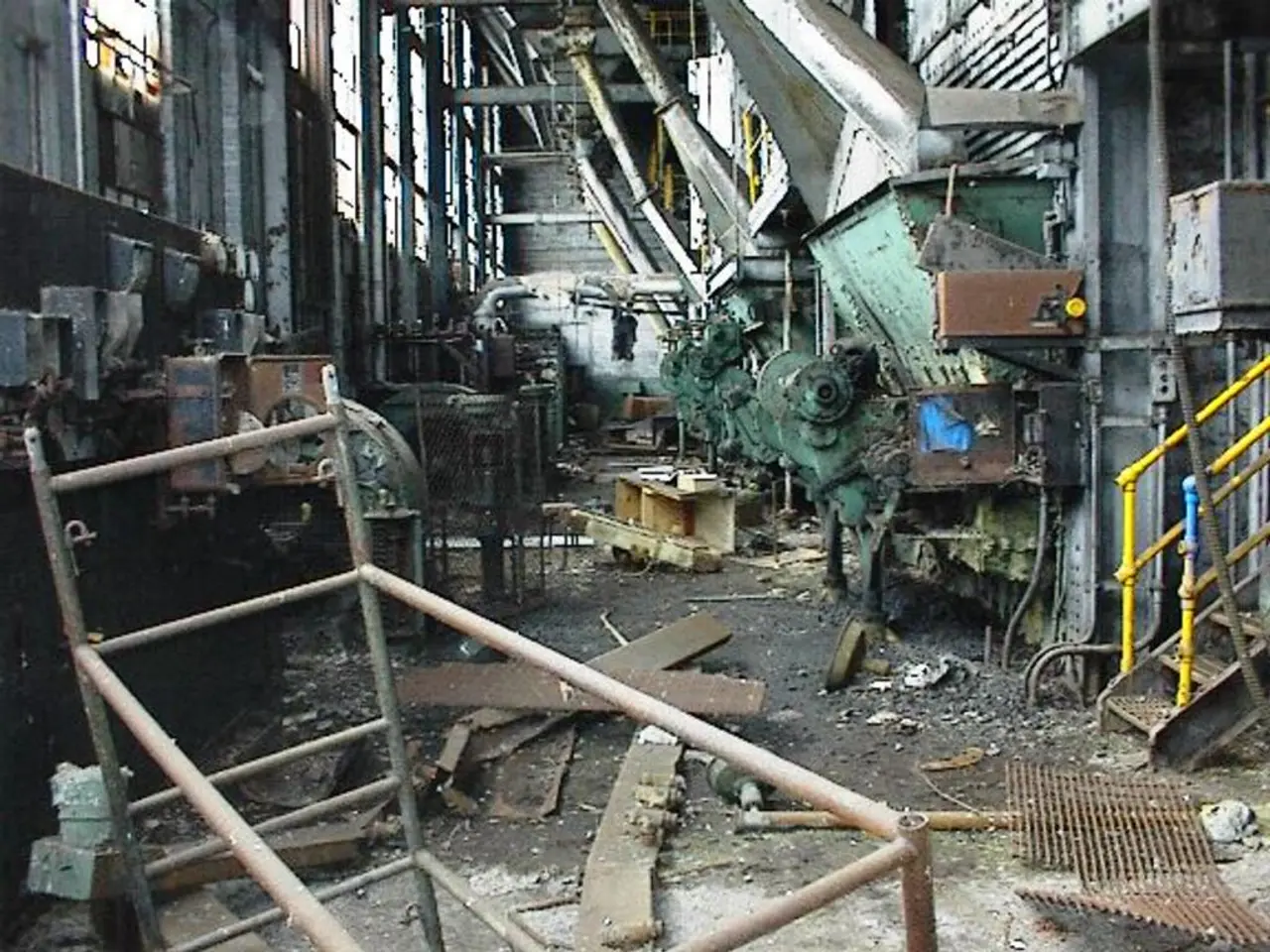Bosch reached a conclusive arrangement in Sebnitz
In a recent development, Bosch Power Tools has announced plans to close its factory in Sebnitz, Germany, by the end of June 2026. The closure will affect approximately 280 employees, with potential wider economic implications for the region.
The decision to close the Sebnitz factory is a part of a global reorganization within Bosch's power tool division, responding to increased competition and price pressure in the industry. The company has highlighted the need for long-term competitiveness as the driving factor behind this decision.
However, the news has not been well-received by all. Trade unions, including IG Metall Ostsachsen, have criticized Bosch for its approach, claiming that the company is evading its social responsibility to the people in the region by relocating production abroad. Uwe Garbe, the first authorized representative of IG Metall Ostsachsen, has accused Bosch of forcing a conciliation procedure to wind down the site quickly and allegedly rip off severance payments.
The conciliation procedure was initiated early by Bosch, according to IG Metall criticism, as a strategic legal measure to accelerate the plant shutdown process. This early procedure bypassed prolonged negotiations or attempts for a turnaround at the Sebnitz plant.
Despite the criticism, Bosch maintains that the decision was a difficult one for all parties involved. The company has emphasized that it is committed to supporting its employees during this transition. A social plan has been created for the employees, which includes severance offers and the option to switch to a transfer company. Thomas Donato, head of the divisional board of Bosch Power Tools, has stated that they will quickly get in touch with all employees to best support them in their individual planning.
Regarding the current status of a potential sale, there is no indication that Bosch is pursuing a sale of the Sebnitz site or its operations. Instead, production will be relocated abroad—specifically to other plants in Bosch’s network, including one in Hungary (Miskolc).
The news of the closure has left many employees in Sebnitz uncertain about their future. Axel Drescher, secretary of IG Metall Ostsachsen, has stated that this approach makes colleagues in Eastern Germany feel like second-class citizens. The trade unions continue to protest the decision and the manner in which it was implemented.
In conclusion, the early conciliation procedure reflects Bosch’s intent to conclude the closure process swiftly, and the current status is that production has been or will be shifted to other Bosch sites rather than seeking a sale of the Sebnitz factory. This decision has sparked controversy and protests from trade unions, who argue that Bosch is not fulfilling its social responsibility to the region.
- The closure of Bosch Power Tools' factory in Sebnitz, amidst criticism from trade unions, is part of a global reorganization in the manufacturing industry, where finance and business decisions are driving the need for increased competitiveness.
- Uwe Garbe, the first authorized representative of IG Metall Ostsachsen, accuses Bosch of exploiting their workforce by allegedly pressing for early conciliation, which could result in reduced severance payments and the relocation of production to foreign finance and business interests, specifically in Hungary.




